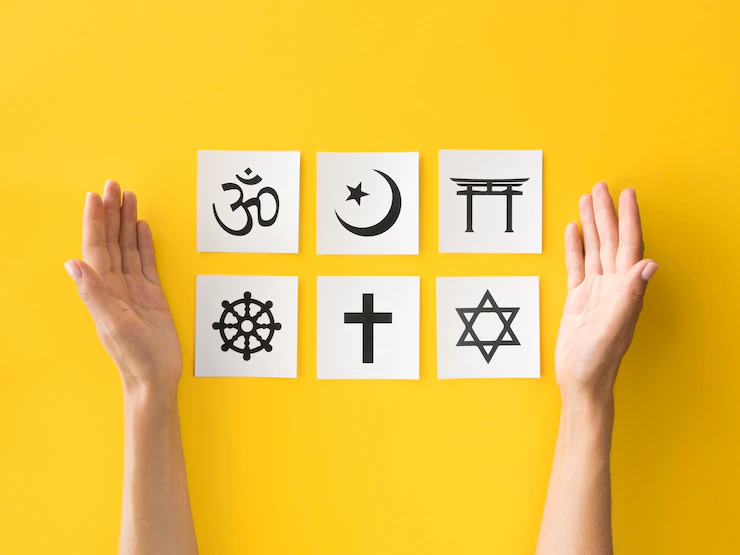Religion is a deeply personal and significant aspect of many individuals’ lives. When entering into a relationship where partners hold different religious beliefs or affiliations, navigating these differences can present unique challenges. However, with open-mindedness, empathy, and effective communication, it is possible to build understanding and respect while embracing religious diversity. In this article, we will explore strategies to navigate religious differences in a relationship, fostering harmony and mutual acceptance.
- Open and Honest Communication
Effective communication is the foundation for navigating religious differences. Begin by openly discussing your individual beliefs, practices, and the importance of religion in your lives. Create a safe space for open dialogue, allowing both partners to express their thoughts, concerns, and questions without judgment. Respectful communication sets the stage for understanding and finding common ground. - Embrace Curiosity and Seek Understanding
Approach religious differences with a sense of curiosity and a genuine desire to understand your partner’s beliefs and values. Ask questions, actively listen, and strive to empathize with their perspective. Learning about each other’s faith traditions, rituals, and core principles fosters mutual understanding and can strengthen the bond between partners. - Find Shared Values
While religious beliefs may differ, it is often possible to find shared values that transcend specific faiths. Identify common ethical principles, such as kindness, compassion, honesty, or a commitment to social justice. Emphasize these shared values as a unifying force that can guide your relationship and actions, regardless of religious differences. - Respect Individuality and Autonomy
Respecting each other’s individuality and autonomy is crucial when navigating religious differences. Understand that religious beliefs are deeply personal and should be a matter of individual choice. Avoid attempting to change or convert your partner’s beliefs. Instead, focus on mutual respect, allowing each other the freedom to practice and express their faith as they see fit. - Explore Interfaith Dialogue and Education
Engage in interfaith dialogue and education as a way to deepen understanding and bridge religious differences. Attend religious services together, participate in interfaith events, or read literature about various religious traditions. This shared exploration can broaden perspectives and promote a sense of inclusivity and appreciation for diverse beliefs. - Create Rituals and Practices Together
Find ways to create meaningful rituals and practices that honor both partners’ beliefs and promote a sense of unity. This could involve designing new traditions, celebrating holidays from each other’s religions, or engaging in shared spiritual practices that resonate with both partners. By integrating elements from both faiths, you can develop a unique and inclusive spiritual connection. - Seek Mediation or Counseling
If navigating religious differences becomes challenging, seeking mediation or counseling can be beneficial. A neutral third party, such as a religious leader, therapist, or counselor, can provide guidance and facilitate discussions to address conflicts and find constructive solutions. Professional support can help couples navigate complex issues with sensitivity and respect.
Navigating religious differences in a relationship requires patience, empathy, and open-mindedness. By fostering open and honest communication, seeking understanding, finding shared values, respecting individuality, exploring interfaith dialogue, creating joint rituals, and seeking professional support when needed, couples can navigate religious diversity successfully. Embracing these strategies allows partners to build a foundation of understanding, respect, and acceptance, promoting a harmonious and loving relationship that thrives despite religious differences. Remember, love and respect can transcend religious boundaries, allowing couples to celebrate and honor each other’s beliefs while growing together in their shared journey.










